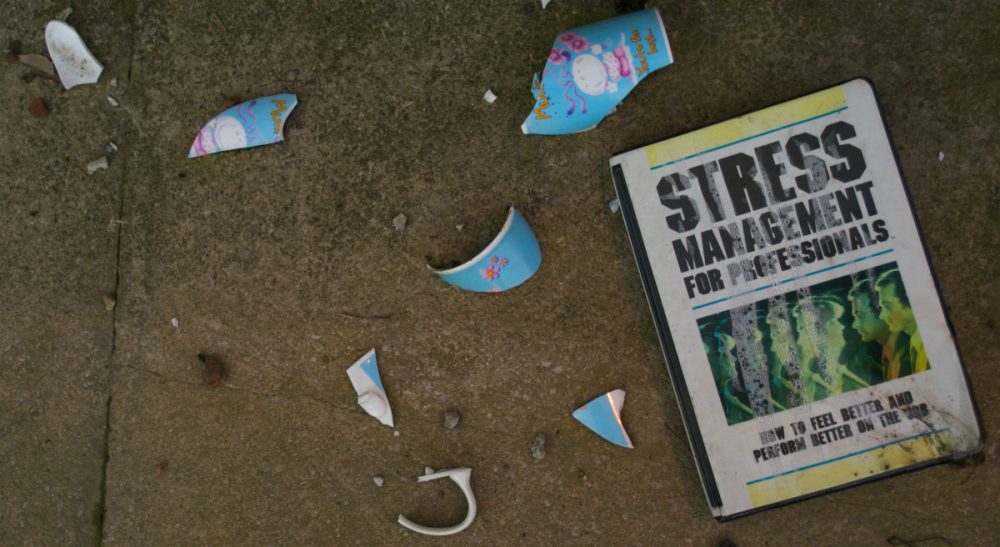Advertisement
Too Much, Too Little, Just Right: Stress At Work, And The Goldilocks Principle

Stress used to be a dirty word. Study after study has shown that stress makes workers less productive, less satisfied, less healthy -- and, therefore, more likely to call in sick. For many years, the message to managers was simple: Stress causes burnout; avoid it for yourself and for those who work under you at all costs.
A growing body of research indicates that some stress is good for workers. Perhaps more important, studies have found that too little stress can be bad.
Nowadays, however, the message is more complex. A growing body of research indicates that some stress is good for workers. Perhaps more important, studies have found that too little stress can be bad. Stress related to boredom leads employees to engage in counterproductive work behavior, such as spending aimless time on the Internet for non-work reasons, gossiping about colleagues, and taking way too much time completing work assignments.
So: Excessive stress leads to mental exhaustion and poor health, but not enough stress results in boredom and demotivation. What’s a manager to do? The answer lies in the Goldilocks Principle. The optimal level of stress is not too much, not too little, but an amount that’s just right.
Moderate levels of stress bring out the best in employees. Research indicates that employees operating under a moderate amount of stress learn faster, are more resilient and are able to juggle multiple tasks. Cultivating a work environment of energized employees thriving on ‘just the right amount of stress’ requires a deft touch. Here are some tips and techniques to consider:
Set ambitious, but attainable, goals. One of the most effective tools for motivating your team (and yourself, for that matter) is a realistic goal. A task or target that seems impossible to achieve, however, can cause an employee to feel demotivated, fearful and upset. That is why you need to set goals that are challenging but within reach. You want your direct reports to feel enough stress so they’re motivated to succeed, but not so much that it stifles their performance. Think about it in terms of exercise. If your coach gave you one minute to do 10 crunches, you might not bother — too easy! If your coach tells you to do 100 crunches in one minute, you might give up. But 40 crunches in a minute might sound doable. The same rules apply at work: Your aim, as a manager, is to set specific and measurable goals that enable your team members to function at peak performance.
Establish real and realistic deadlines, and communicate them to your team. Too often, managers set deadlines with lots of wiggle room built in, but they neglect to convey that to their teams. They set these made-up deadlines with good intentions. If a project is not going according to plan, managers want to have leeway to correct course. But false deadlines create a false sense of urgency. Nothing raises cortisol levels like a ticking clock — working against one it is incredibly stressful. Some may do their best work under that kind of pressure, but many others founder. Deadlines have their place, but don’t let the clock tick unnecessarily. Be honest and open. Ask your team whether your expectations are realistic. And if you’ve padded a deadline, communicate that to your employees. That way, when it really is go time, your team will feel enough tension to trigger that last-minute spurt of creativity.
Excessive stress hurts, too little stress bores, but a moderate amount of stress gets the job done.
Provide frequent—but not constant—feedback. Insecurity is a big culprit of job-related stress. Employees lacking in confidence fret: Am I doing a good job? How long will I still have a job? Meanwhile, self-assured high performers worry: Does my boss appreciate what I do for this company? Will I be able to get ahead? The lack of feedback from management sows seeds of doubt, which, in turn, creates stress. But this is easy to rectify: provide employees with regularly scheduled progress reports. These need not take place every week or even every month, but employees need to have some measure of how they are doing. Employees should feel a certain amount of stress about performing well, but they should not feel so much that it consumes them. Giving regular feedback keeps this from being the case.
Stress is not a dirty word. Excessive stress hurts, too little stress bores, but a moderate amount of stress gets the job done.

